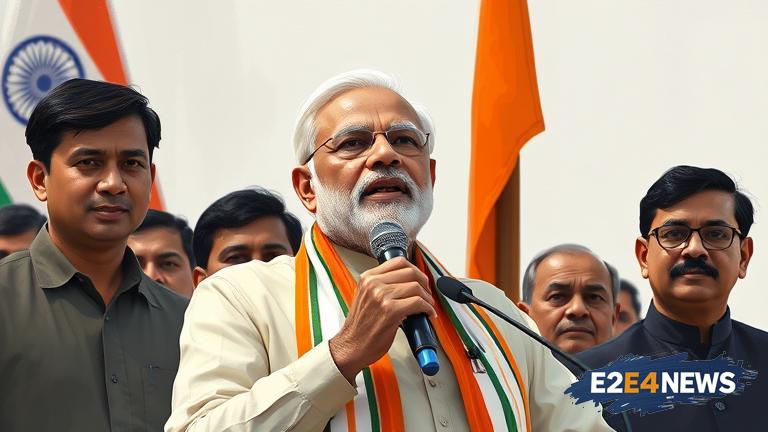The Indian National Congress leader, Kapil Sibal, has strongly criticized the Modi government’s new bills, stating that they are the most ‘constitutionally immoral’ in India’s history. Sibal’s comments come after the introduction of new bills that aim to remove the Prime Minister, Chief Ministers, and Ministers from office. The bills have sparked controversy and debate among politicians and citizens alike. Sibal argued that the bills are an attempt to undermine the democratic institutions of India and concentrate power in the hands of the ruling party. He also stated that the bills are a threat to the federal structure of the country and could lead to the erosion of the rights of the states. The Modi government has defended the bills, stating that they are necessary to ensure accountability and transparency in governance. However, the opposition parties have rejected this claim, arguing that the bills are a ploy to silence dissenting voices and consolidate power. The introduction of the bills has also raised concerns about the independence of the judiciary and the role of the opposition in a democratic system. Sibal’s comments have sparked a heated debate, with many politicians and experts weighing in on the issue. Some have argued that the bills are a necessary step towards reforming the country’s governance structure, while others have criticized them as an attack on democracy. The controversy surrounding the bills has also highlighted the deepening divide between the ruling party and the opposition. The opposition parties have vowed to fight against the bills, stating that they will not allow the Modi government to undermine the country’s democratic institutions. The issue is likely to be debated in the upcoming parliamentary session, with the opposition parties planning to move amendments and motions against the bills. The Modi government, on the other hand, is confident that it has the numbers to pass the bills, despite the opposition’s resistance. The controversy has also sparked protests and demonstrations across the country, with many citizens expressing their opposition to the bills. The issue has become a major talking point in Indian politics, with many analysts predicting that it could have significant implications for the country’s democratic system. The Modi government’s move has been seen as an attempt to consolidate power and silence dissenting voices, which has raised concerns about the health of India’s democracy. The opposition parties have argued that the bills are a threat to the country’s federal structure and could lead to the erosion of the rights of the states. The controversy has also highlighted the need for greater transparency and accountability in governance, with many calling for more robust checks and balances on the power of the executive. The debate surrounding the bills is likely to continue, with the opposition parties planning to take their fight to the streets and the courts. The issue has become a major challenge for the Modi government, which is facing increasing criticism for its handling of the economy and other key issues. The controversy has also raised questions about the role of the opposition in a democratic system and the need for a strong and vibrant opposition to hold the government accountable. The Modi government’s move has been seen as an attempt to undermine the democratic institutions of India, which has sparked widespread outrage and criticism. The issue is likely to have significant implications for the country’s democratic system and the future of Indian politics.
